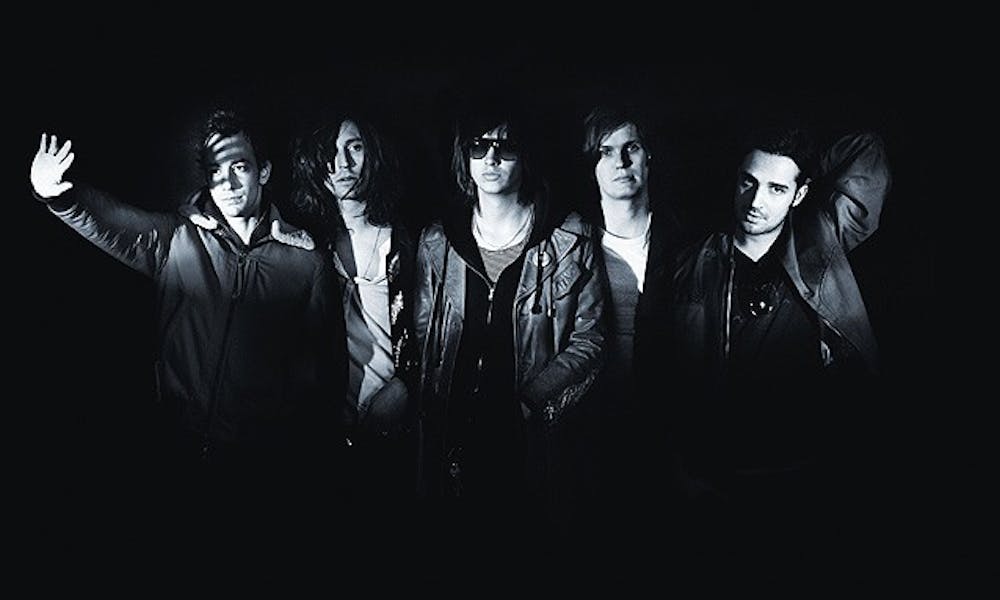People generally consider the Strokes’ 2003 sophomore effort Room on Fire an inferior follow-up to their relentlessly hyped 2001 debut Is This It; I’m one of the few who disagree. The reputation of the latter always seemed to be shaped as much by the band’s image—their precociously stylish nonchalance—as by their infectious proto-punk songcraft. When Room on Fire appeared two years later, the conversation about the Strokes was so preoccupied with their role in the early-’00s rock revival that few bothered to notice, hey, Nick Valensi had learned some killer guitar leads.
So it’s appropriate that almost a decade after those impossibly cool kids were first unleashed on an unsuspecting pop-music press, the conversation still has more to do with the Strokes themselves than with newest LP Angles. In truth, Julian Casablancas and company have always been defined as much by what they are not—neither saviors nor destroyers of rock music—as what they are—a flawed, but talented outfit that once performed the rare feat of catching lightning in a bottle not once but twice.
The inevitable exposition about whether or not rock is dead or alive (and whether Casablancas and Jack White resuscitated it, killed it or both) is unnecessary. Suffice it to say that Angles, like its lesser 2006 predecessor First Impressions of Earth, fails to capture that lightning a third time. Instead, it’s the dysfunctional yet promising work of five undeniably different individuals—different not only from each other, but from the swaggering early-twenties versions of themselves.
The first thing anyone heard from Angles was how dissatisfied the band were with the process of making it. The idea was that unlike the first three albums, which Casablancas wrote for the most part by himself, the songwriting on this one would be a collaborative project. It shows, and the resulting LP could never be mistaken for cohesive. There’s some head-scratching influences at work here: the arena-rock theatrics of “Two Kinds of Happiness,” the new-wave slickness of “Games,” the proggy, meandering darkness of “Metabolism.” And though all of these tracks are recognizably Strokes, none even bother trying to be Is This It. Casablancas’ vocals are often frustratingly low in the mix, nowhere more so than the abortive “Call Me Back.”
At the same time, a good portion of Angles bears more than a passing resemblance to their earlier masterpieces. Closer “Life Is Simple in the Moonlight” sounds pretty vintage, except for Casablancas’ singing the verses in an inquisitive falsetto. Twin standouts “Taken for a Fool” and “Under Cover of Darkness,” the album’s lead single, take the band’s former confidence and add a layer of world-weary humanism that might be the best possible addition to the Strokes’ arsenal. On the latter, Casablancas sings, “I’ve been around this town/ Everybody’s singing the same song for ten years,” a lyric more than a few critics have singled out as particularly ironic.
But it’s his admonition, “Sister, don’t you forget my number,” on “Taken for a Fool” that really lands. Angles won’t cement the Strokes’ legacy, but it won’t ruin it either.
Get The Chronicle straight to your inbox
Signup for our weekly newsletter. Cancel at any time.

